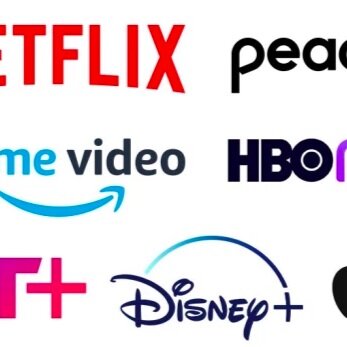Film/TV Issues to Consider With AI
What Attys Should Know As Hollywood Writers' Strike Looms
Oral Agreement v. Written Agreement…That is the question.

How Hollywood Joined the Global Movement to Isolate Russia Within Hours
After a Monday filled with meetings throughout Hollywood, the film industry joined the growing list of businesses and governments moving to isolate Russia over President Vladimir Putin’s decision to invade Ukraine.

The Power of the Global SVOD Market and its Impact on Film Financing
Streaming services and Pay TV have slowly been creeping up the totem pole in terms of marketshare and consumer influence. Netflix was at the forefront of original programming streaming model, with its ground breaking series House of Cards, which also initiated the concept of binge watching. The SVOD (subscription video on demand) platform is now driving “television” viewing.

Can International Sales Agents Be Blamed for Low Performing Film Sales?
International and Domestic sales of independent film is a volatile undertaking, even under the best of circumstances. Therefore, International Sales companies must be careful, and filmmakers must be realistic regarding expectations for revenue generation.

How to Protect Yourself from Investor Lawsuits in Film Financing
Investing in films is a risky and speculative business. The allure of potential 9 figure returns is extremely enticing to an investor. The business is sexy (stars, red carpets, potential big money, being a part of “Hollywood.”) However the ultimate returns often allude the very person that put up their hard earned equity.

“Day and Date” Release Patterns, What is VOD’s Impact on the Distribution Timeline?
Release windows in content distribution are still a challenge for the exhibitor, distributor and filmmaker alike. The exhibitor wants exclusivity in the theatre for as long as possible so they can earn as much revenue before other platforms claim their share of the pie. Distributors, and therefore filmmakers, must look at films as a product like any other merchandise in the marketplace.

Greenlit…To Be Or Not To Be – When is Your Movie a Go?
Greenlit is a term of art in the entertainment industry when the heavens have aligned, and the “powers that be” (investors, production studio, or distributor,) have given authorization for the movie to go into production. Beware, however, that you are not likely to get this “greenlighting” authorization via a legally binding documentation that will actually protect you in the case the investor backs out.

False Representation vs. Breach of Contract in Film Financing – Who Wins?
Investment in film has the potential for high reward but is always combined with high risk. Little or no collateral, lack of liquidity, changing consumer demand, market competition and over zealous promises made by the filmmakers all contribute to the risk factor. Investors must rely on strong market analysis, distribution pre-sales and the integrity of the filmmakers who are making the proclamations in the prospectus. If any one of these elements is fraudulent, that can mean disaster for the investor and potential violation of contract elements.

Economic Damages: A Case Study – The Actor
The large majority of lawsuits involving individuals in the entertainment industry revolve around lost wages or fees.
The question one should ask in order to determine the value of damages in these cases is this: how do you best determine whether a particular individual should be categorized into that rare group of earners? In other words, how do you determine whether the claim is purely speculative, or if it can be proven within a reasonable degree of certainty?

A Case Study: Guild Residual Calculations – Studio vs. Independent Film Finance Models
The Writers Guild of America (WGA), Screen Actors Guild (SAG), and the Director’s Guild of America (DGA) track the international box office, DVD, VOD and television revenues of films around the world in order to assess the correct residual amounts for their members. The challenge facing the Producer however is that the Guilds utilize the same accounting methods to assess royalties with independently financed films as they do the studio financed films, and therefore the producer can be overcharged dramatically on an indie film.

Unpublished Authors and The Battle Against Copyright Infringement
Copyright infringement is a hot topic in the entertainment industry and I have worked on my fair share of cases on this issue. Having testified for both Plaintiffs and Defendants, successful and not so successful writers, the published and the unpublished, the questions remain the same
Don’t all authors deserve copyright protection?

ABC’s of International Pre-Sales
A common financing vehicle for independent films is “Pre-Sales.” The phrase is often thrown around among producers and distributors in every day conversation. However, as more and more content creators are getting involved in bringing script to screen, everyone is trying to understand how this prominent financing tool actually functions.

More Capital, More Distribution Channels – Good News For Film Producers
The mantra consistently sounded at the 2013 American Film Market panel “Current Issues in Film Finance” was clearly this: the opportunity to fund and distribute your film project is greater than ever. However, there’s a catch – you must not only have a great story, but a strong strategy from beginning to end.
3 power house indie film executives…

Indie Film Financing: A Banker’s Perspective on Banks, Hedgefunds and New Distribution Platforms

The Draw of the Entertainment Industry: What Inspires New Investors to Enter the Fray?
The entertainment industry is one that requires a tremendous amount of passion, patience and an enormous amount of luck. Thousands of projects are developed each year and only a handful get made and distributed. What continues to draw successful people from other industries into the film business? What drives them? What is their approach to success?

How To Make Indie Filmmaking Profitable In The Age of Tentpole Franchises
To some, indie filmmaking is an art form, to others a dream of of seeing their story come to life on the big screen, however, it is meant to be a profitable business. Investors put money into a film, and expect to get their money back and receive a decent return on their investment. I sat down with Cindy Nelson-Mullen, Co-CEO of MonteCristo International, an international sales agent/production company, and discussed with her the elements it takes to make a profitable film in this changing economic landscape

Getting Real with Indie Film Finance and Distribution

Writers, Producers, Directors — The DEAL
In addition to film financing, the writer, producer and director deals are a major factor in getting films produced – each deal differs depending on the experience and clout of the players involved. These deals will in turn have a huge impact on back end money that may or may not be available for the producer.
